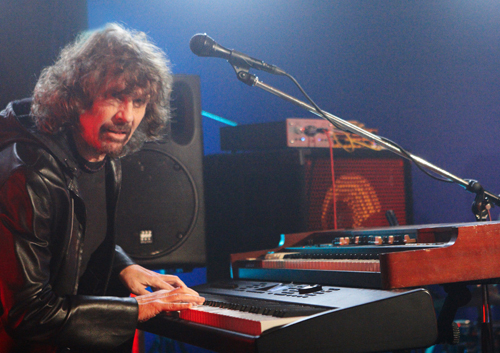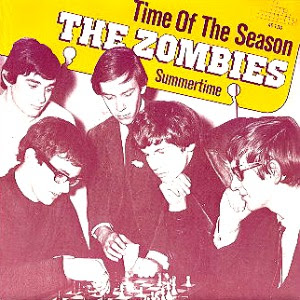Of course they’ve scored plenty of hits over the years, but the prime catalyst of Fleetwood Mac’s legend, why they still generate a buzz and draw arena-sized audiences whenever they re-team for a tour — the band begins a new one next Thursday night in Columbus, Ohio — is Rumours.
For as much as been said and written about the 1977 album’s often-tumultuous creation, of infamous tales of band members feuding and fucking and shoveling through insane quantities of cocaine, its songs collectively remain the band's crowning achievement. Recently released by Warner Music, Rumours (35th Anniversary Expanded Edition) illustrates over three discs just how driven these musicians were to have something to show for the soap opera their personal lives had become.
Only the second album to include Lindsey Buckingham and Stevie Nicks in the fray — the lineup was rounded out by Mick Fleetwood, Christine McVie, and John McVie — the Mac were at this point a pop/rock band, with mainstream hits like “Rhiannon” and “Say You Love Me” having moved them beyond the British-blues roots espoused by departed member Peter Green. And yet listening to some tracks on this set’s third disc, More From The Recording Sessions, reveals an unmistakable blues influence. The included demo of “The Chain,” most notably, finds Nicks summoning a feral, sobering vocal accompanied only by Buckingham’s stark, acoustic guitar. Comparably, Ms. McVie leads the band through a brooding take of "Oh Daddy," her slinky keyboard riffs against a thick-and-sultry rhythm giving the song a heavier vibe than the light-string-embellished version on the finished album.
In fact the third disc is what makes this entire set essential — the first disc comprises the album proper (which, if you're interested in this collection, you likely already own) while the second disc is a solid but nevertheless straightforward live performance from the Rumours tour — because it offers perspectives of songs that are, at times, drastically different than the ones to which we’ve been accustomed. Sometimes, as with early, scaled-down takes of "Dreams" and the B-side "Silver Springs," they're as good and, arguably, better than their most familiar versions.
(First published at Blogcritics.)























